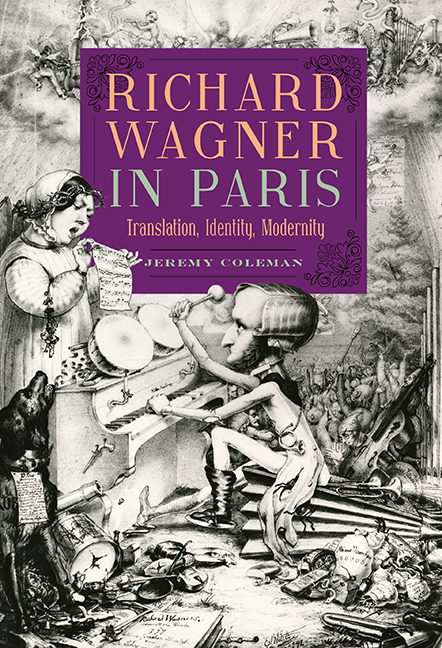Book contents
- Frontmatter
- Dedication
- Contents
- List of Illustrations
- List of Music Examples
- Note on the Text
- Acknowledgements
- Abbreviations
- Introduction: Wagner Against the Grain
- PART I PARIS YEARS, 1839–42
- PART II DRESDEN AND ZURICH, 1842–52
- 3 “… in ein fernes Land”: German Identity Between Paris and Dresden
- 4 Exile, Internationalism and Media After the Revolution
- PART III PARIS YEARS, 1859–61
- Conclusion: Universality at the Crossroads
- Bibliography
- Index
4 - Exile, Internationalism and Media After the Revolution
from PART II - DRESDEN AND ZURICH, 1842–52
Published online by Cambridge University Press: 25 March 2020
- Frontmatter
- Dedication
- Contents
- List of Illustrations
- List of Music Examples
- Note on the Text
- Acknowledgements
- Abbreviations
- Introduction: Wagner Against the Grain
- PART I PARIS YEARS, 1839–42
- PART II DRESDEN AND ZURICH, 1842–52
- 3 “… in ein fernes Land”: German Identity Between Paris and Dresden
- 4 Exile, Internationalism and Media After the Revolution
- PART III PARIS YEARS, 1859–61
- Conclusion: Universality at the Crossroads
- Bibliography
- Index
Summary
IN the course of the 1840s, at a time of increasingly strident German nationalist sentiment, radical German intellectuals continued to receive French political thought with enthusiasm. Many of them even resided in Paris for a time, such as Arnold Ruge and Karl Marx (in 1843–44). For Wagner, it was only after the Dresden Uprising of May 1849 and his subsequent flight into Swiss exile that he renewed his interest in Paris both as a hotbed of radical politics and as a centre for modern European theatre. Living for the most part in Zurich until the exile was lifted in 1862, he made a “second assault” on Paris in the immediate aftermath of the uprising. In contrast with his previous Parisian period, from 1839 to 1842, many of the “translations” of Wagner's works and writings were predominantly of a literary nature, not least because Wagner hardly composed a note of music, concentrating instead on prose writings and other projects including unfinished opera drafts. He also spent relatively little time in Paris itself, only staying there from 30 May to 6 July 1849 and from 1 February to 13 March 1850. Most of his plans were carried out or contemplated in Zurich, at a distance.
On 13 May 1849, Wagner fled from Dresden to Weimar where he lodged with Liszt, and together they plotted Wagner's immediate future and nothing less than the future of art in the wake of political failure. At least three distinct but related spheres of activity presented themselves to Wagner as routes back to Paris: operas for the French stages, political pamphlets, and articles of self-promotion. Wagner referred to his “Paris plans” – otherwise described as his “Paris opportunities” and his “Paris expedition[s]”. Even in recent surveys of Wagner's initial period of post-1849 exile, his interest in Paris has tended to be eclipsed by Zurich not only as a political haven but also as a musical, cultural and even geographical influence. The present chapter considers these plans in the context of variously Young Hegelian, internationalist and related intellectual movements which to some extent had underpinned the 1848–49 revolutions, whilst examining notions of translation in terms of global capitalist circulation as they impinged on Wagner's activities. The final part of the chapter explores the question of Wagner's handwriting as a media channel which was no less important as a means of translation within international spaces.
- Type
- Chapter
- Information
- Richard Wagner in ParisTranslation, Identity, Modernity, pp. 105 - 134Publisher: Boydell & BrewerPrint publication year: 2019



